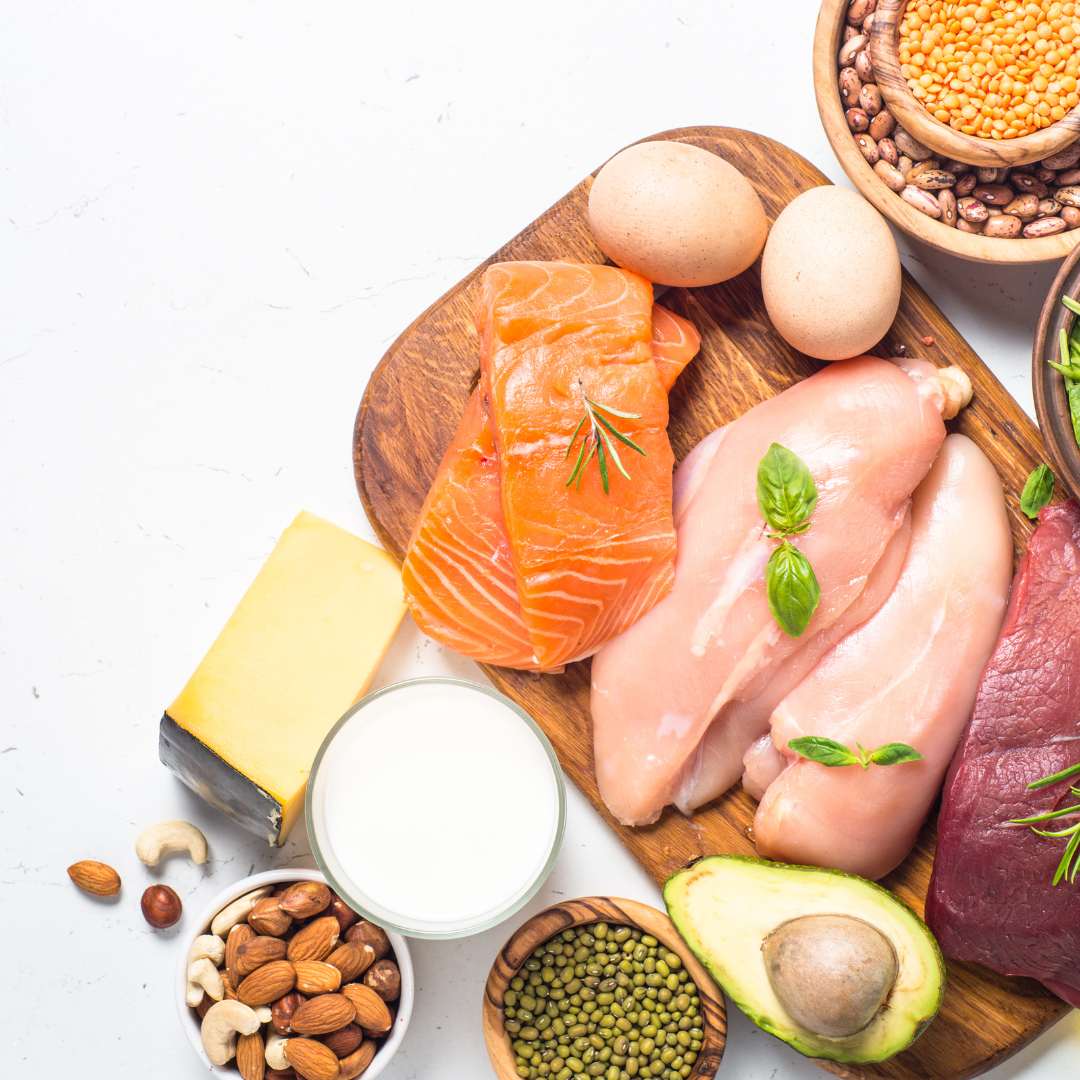Protein is more than just a nutrient; it’s a building block for the body, supporting everything from muscle maintenance to metabolic health. For those looking to optimize their health and longevity, prioritizing protein in every meal is an essential, practical step. Let’s dive into why protein is so vital and explore easy ways to incorporate high-quality sources into your daily meals.
Why Protein Matters
Proteins are made up of amino acids, which are crucial for countless bodily functions, including repairing tissues, synthesizing hormones, and supporting immune function. Unlike carbohydrates and fats, the body doesn’t store protein, so we must consume it regularly. Including a source of high-quality protein at every meal can help with:
- Muscle Maintenance: Our muscles naturally atrophy with age, especially if we lead a sedentary lifestyle. Protein intake helps counteract muscle loss by providing the amino acids necessary for muscle protein synthesis, especially when combined with resistance training.
- Metabolic Health: Protein influences our metabolism by increasing the body’s thermic effect – the amount of energy needed to digest and process food. A protein-rich diet can aid in calorie burn and help regulate blood sugar levels, preventing energy crashes and supporting sustained energy.
- Satiety and Weight Management: Protein takes longer to digest, keeping you full for longer periods. This helps curb cravings, making it easier to maintain a healthy weight without feeling deprived.
Understanding High-Quality Protein
Not all protein sources are created equal. The quality of protein is determined by its amino acid profile and bioavailability – how easily the body can absorb and use it. High-quality proteins contain all nine essential amino acids that the body cannot produce on its own. Some top sources of high-quality protein include:
- Animal-Based Proteins: Chicken, turkey, fish, eggs, dairy, and lean red meat are complete proteins, meaning they provide all essential amino acids.
- Plant-Based Proteins: Soy (such as tofu, tempeh, and edamame), quinoa, and hemp seeds are complete plant-based proteins. Other plant proteins, such as legumes and nuts, are beneficial but should be paired with complementary sources to ensure a complete amino acid profile.
How Much Protein Do You Need?
While individual protein needs vary, a general recommendation for adults is 0.8 to 1 gram of protein per kilogram of body weight. For those over 50 or individuals aiming to preserve muscle mass and support metabolism, protein needs might be higher, around 1.2 to 1.5 grams per kilogram. Consulting with a healthcare provider can help determine the ideal intake for your unique needs and lifestyle.
Practical Tips for Including Protein in Every Meal
With some forethought, you can ensure each meal includes a protein component, whether you’re at home, at work, or on the go. Here are some practical tips:
- Breakfast:
- Start the day with eggs or Greek yogurt, both excellent sources of complete protein. If you’re plant-based, a smoothie with protein powder (e.g., pea or hemp protein) can work wonders. Add nuts, seeds, or oats to up the protein content.
- Try making a chia pudding the night before with almond milk and chia seeds for a protein boost that’s also rich in fiber.
- Lunch:
- Salads can be transformed with high-protein toppings like grilled chicken, salmon, chickpeas, or tofu. If you’re in a hurry, a can of tuna or a handful of nuts and seeds can provide protein in seconds.
- Consider meal-prepping high-protein bowls with quinoa, lentils, or farro as a base. Pair with veggies and a source of lean protein, and you’ve got a nutrient-dense, satisfying meal.
- Dinner:
- Aim to make your dinner plate balanced, with about a quarter of it dedicated to protein. This could be fish, chicken, beef, tempeh, or a legume medley.
- Opt for methods like grilling, baking, or steaming to retain the nutrient profile of your protein source without adding unnecessary calories.
- Snacks:
- Protein-rich snacks are an excellent way to stave off hunger between meals. Keep Greek yogurt, cottage cheese, or a handful of nuts and seeds on hand. Protein bars can also be a convenient option, though it’s best to choose those with minimal added sugars.
Common Challenges and How to Overcome Them
Despite protein’s benefits, many find it challenging to include adequate protein in each meal. Here are some common hurdles and strategies for overcoming them:
- Time Constraints: For busy mornings, prepare protein-packed options like hard-boiled eggs, pre-made smoothies, or overnight oats. These grab-and-go options are perfect for busy schedules.
- Cost: High-quality protein doesn’t have to break the bank. Canned beans, legumes, and whole grains like quinoa are affordable and versatile.
- Dietary Preferences: For those on plant-based diets, combining different plant foods (e.g., rice and beans) can create complete protein sources, making it easier to meet amino acid requirements without animal products.
The Bottom Line
Prioritizing protein at every meal doesn’t need to be complicated, but the benefits can be profound. With a few mindful choices, you can support muscle maintenance, enhance metabolic health, and feel satisfied throughout the day. By treating protein as the centerpiece of your meals, you’re taking a powerful step toward a healthier, stronger you.
Whether you’re just starting on your health journey or looking to optimize your diet, remember: each meal is an opportunity to nourish and fortify your body. With protein as your ally, you’re well on your way to improved health and longevity.

